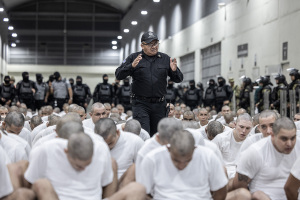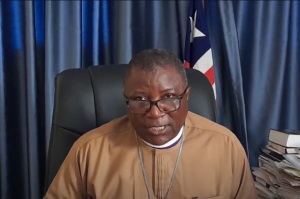Seven Ways to Help Your Staff Go the Distance
Ministry isn't a sprint. It's a long-distance race. I learned that very early at Saddleback.
As a Toolbox reader, you may have heard me tell the story about when I burned out emotionally when the church was only about four years old. I tell the story often because it was an absolutely crucial moment in the history of our church. The church was growing very fast. And I was still trying to do everything myself – all the preaching, teaching, praying, baptizing, counseling, hospital visits, and funerals. I was running out of energy. I had made a 40-year commitment to Saddleback, and I was already burning out.
Finally, one Wednesday night I told our people, "Folks, I can't do this any more." I then explained to them much of what would later become Class 301 – that pastors should be the administers while lay people are the ministers. It helped release our church members to fulfill their ministry potential in our community and around the world.
It opened my eyes as well. I realized that if I was going to fulfill my 40-year commitment, I'd have to make some important changes in my ministry. That experience made me particularly sensitive to overloading my staff. I want them to be around for the long haul. I know what we're doing has eternal implications. And I need every one of them to go the distance with me.
I realized that you have to do ministry with what I call relaxed concern. It sounds like a contradiction, but it's not. We realize that heaven and hell hang in the balance when you talk about the ministry of the church. Still, you can't do ministry tightly wound all the time. The quickest way to burn out a staff is to not economize energy, to not ever relax. I've talked to a lot of pastors and been in a lot of churches throughout the years. There are a lot of burnt out staff people out there. The problem isn't that they aren't dedicated enough. They're too dedicated! Their dedication is not tempered by the ability to relax.
Every minute of the day, you and your staff are using energy no matter what you are doing. Every person has a limited amount of energy. It's like a battery. If you plug in a 60-watt bulb into the battery, the battery's going to last a long time. If you plug in two, it's going to last half the amount. Soon, if you've got 20 bulbs in, they'll burn out a lot faster.
Like most churches, I'm sure your staff is juggling many different tasks. So it's critical that you don't drain your staff and develop a relaxed attitude.
How do you do that?
1. Don't expect every staff member to work at the same energy level all the time. It is unrealistic. We're all made differently. You shouldn't expect more from people than they can give. Everybody is a racehorse, a turtle, or somewhere in between. And neither is right. Sometimes our churches need racehorses. Other times, they need turtles. You just need to have an idea of how God made the people on your staff so you can make sure they're performing at their optimal energy level.
2. Be aware of external drains on energy and compensate for them. When a staff member is going through an illness, a personal crisis, a relational problem, or welcoming a new baby in their family, it's going to be a drain on them. You can't expect them to have the same amount of energy and be able to devote as much time to their work. It's unrealistic, and you'll burn them out if you do. You'll need to compensate for what they can't do during that time.
3. Plan your year in cycles. Over the years at Saddleback we've tried to plan two primary campaigns each year – one in the spring and another in the fall. The spring campaign is typically from Easter until around June. The fall is from October until Christmas. We have most of our growth during those two periods.
But you can't maintain that pace. You and your staff need breaks. We plan our lower stress times in the summer and in the winter. If you try to run high-intensity campaigns all year long, you'll burn everybody out. Try two a year, and you'll be able to sustain the growth much easier.
4. Allow flexible schedules. Don't focus on the number of hours your staff works. Focus on productivity. Get the job done, then go home. And if you have staff who need to work late, let them come to the office late the next day. In ministry, flexible schedules are a must.
5. Work smarter, not harder. It's not about how hard your work. It's about how smart you work. Spend time developing the skills of your staff. Give them as many opportunities for further training as you can. Encourage them to read. Help them be as effective as possible. Then they'll be more efficient – and less stressed.
6. Focus on the long haul. Show your staff that you're interested in long-term results, not instant results. Reward long-term commitment by staff and the meeting of long-term goals. Make sure your staff knows that you want them to be around for a while.
7. Make work fun. The most successful people in life are people who get paid for doing what they love. As much as possible, we try to make Saddleback a fun office to work in. We laugh. We have fun together. We give the staff the freedom to be themselves. We take God seriously, but we don't take ourselves too seriously. Look for some ways to inject fun into your office, and you won't burn your staff out.
One of my life verses is Proverbs 14:30 (TLB): "A relaxed attitude lengthens a man's life."Would you like to live a long time? Would you like to last in the ministry? Would you like your staff to last in ministry?
Teach them to relax.





























